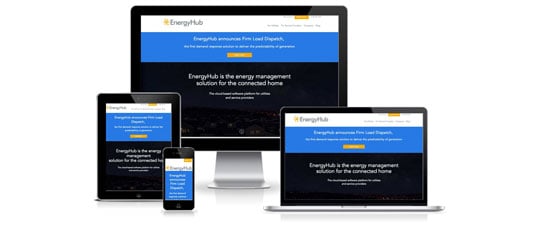
Search Engine Optimization and Paid Search Advertising are two parts of an effective digital marketing strategy. While SEO can bolster your brand in organic search rankings, paid search ads are a powerful tool for driving traffic to potential customers and generating leads. However, to maximize their potential, clients must work effectively with their agencies. Display ads, social media marketing, retargeting, and PPC, among others, are effective search engine advertising options to investigate with your agency partner.
Here’s how you can be a part of a successful client-agency relationship and get the most from your paid search campaigns.

A paid search assessment is the foundation of any successful Search Engine Marketing and PPC strategy. Evaluating the ad's quality score and relevance during this assessment is crucial for optimizing campaign performance. It provides realistic feedback on your ad implementation, highlighting both strengths and areas for improvement. By analyzing key metrics such as click-through rates, conversion rates, and cost-per-click, you can identify inefficiencies and opportunities for optimization. This assessment helps you understand how your budget is being utilized and where adjustments are necessary to enhance profitability and reduce waste. Utilizing tools like Google Keyword Planner can further refine your marketing strategy by offering insights into search volume for relevant keywords and get forecasted clicks and bid prices to enable strategic adjustments for better results.
Establishing clear goals, key performance indicators (KPIs), targeted search terms, and intended audience is essential for guiding your paid search efforts. Setting marketing goals for your advertising campaigns and understanding your chosen demographic are crucial for tracking performance and ensuring optimal outcomes. Your objectives should align with your broader business goals, whether it’s increasing brand awareness, driving more traffic, or boosting sales. KPIs such as impressions, clicks, conversions, and return on ad spend (ROAS) should be defined to measure progress. Targets need to be realistic and based on historical data and market research. By setting these parameters, you can monitor your campaign performance effectively and make informed decisions to optimize your long-term strategy.
Accurate tracking is crucial for understanding which metrics and events lead to revenue. Effective PPC tracking and analyzing PPC data play a significant role in optimizing campaigns. Ensure that your tracking mechanisms capture only the most relevant data that impacts your bottom line. Focus on metrics that matter, such as conversions and ROAS, rather than vanity metrics like impressions or clicks. Tools like Google Analytics and conversion tracking can provide insights into user behavior and attribute sales accurately. This approach allows you to refine your campaigns based on what truly drives revenue, ensuring a more efficient allocation of resources.
Leveraging the expertise of your PPC agency is vital for maximizing your campaign’s effectiveness. Agencies can help optimize ad campaigns and ad copy for better performance, ensuring that your advertising strategies align with organizational goals and improve key metrics. Agencies bring a wealth of knowledge and experience, offering insights into the latest trends and best practices. Collaboration and communication with your agency are key to ensuring that your business objectives are understood and met. Regular meetings and updates can help align strategies and make necessary adjustments. By relying on PPC professionals, you can optimize your campaigns for success, leading to better results and a higher return on investment.
Negative keywords are essential for refining your PPC campaigns. They help prevent ads from appearing for irrelevant search queries that are unlikely to convert. By excluding these off-target keywords, you can improve your rank by making your ads more relevant. This allows you to focus your budget on traffic that is more likely to generate revenue. For example, if advertising luxury cars, adding “used” as a negative keyword ensures your ads don’t show for search intent related to used cars. This strategy saves money and improves your Quality Score by making ads more relevant, leading to better placement on search platforms and higher conversion rates.
Ad extensions enhance the visibility and effectiveness of your PPC ads by providing additional information and options to potential customers. Aligning landing pages with ad extensions is crucial to improve marketing efforts, as it ensures a seamless user experience from the ad to the landing page. They can include contact details, site links, or special promotions, increasing the ad’s real estate on search results pages. Extensions improve click-through rates by offering users more reasons to engage with your ad. Utilizing ad extensions can improve your ad’s performance, leading to higher conversion rates and a better return on investment.
Performance Max (PMax) is an AI-driven advertising channel that is gaining traction in PPC. It integrates with Google Ads to optimize campaigns across different networks. It allows advertisers to show the right ad to the right person across networks like search, display, YouTube, and Gmail. PMax is effective for retargeting and offers lower average cost-per-click (CPC) and cost-per-thousand impressions (CPM) compared to standard search campaigns. It complements paid search by expanding its reach and improving efficiency, rather than replacing it. PMax leverages machine learning to optimize ad delivery, ensuring ads reach the most relevant audiences. Integrating PMax with existing PPC efforts can enhance overall campaign performance and achieve a more comprehensive online presence and digital advertising strategy.
To get the most from your paid search campaigns, it’s essential to engage your agency-client relationship, working closely to leverage their expertise and insights. Effective paid search marketing and managing your advertising budget are crucial for successful campaigns. By conducting thorough assessments, setting clear goals, ensuring accurate tracking, and utilizing advanced strategies like negative keywords, ad extensions, and Performance Max, you can optimize your campaigns for success. This collaborative approach not only enhances your advertising efforts but also ensures a higher return on investment, ultimately driving business growth.
Schedule Discussion



Connect On Social
Connection Model
What is a Digital Marketing Agency
What is Inbound Marketing?
What is Search Marketing Equity® ?
What is Organic SEO?
HubSpot Certified Partner Agency
How Fast PageSpeed improves SEO
Social Media Marketing
Brand Photography
Preventing Digital Marketing Fraud
How to get the most from our PPC Agency
Competitor Analysis & Market Assessment
Boosting Search Visibility with Content Optimization
Proper use of AI in Content Marketing
Connection Model has 10 reviews with an average rating of 5.0 stars on a 5.0 scale.
Third-Party Source: UpCity
From The Blog